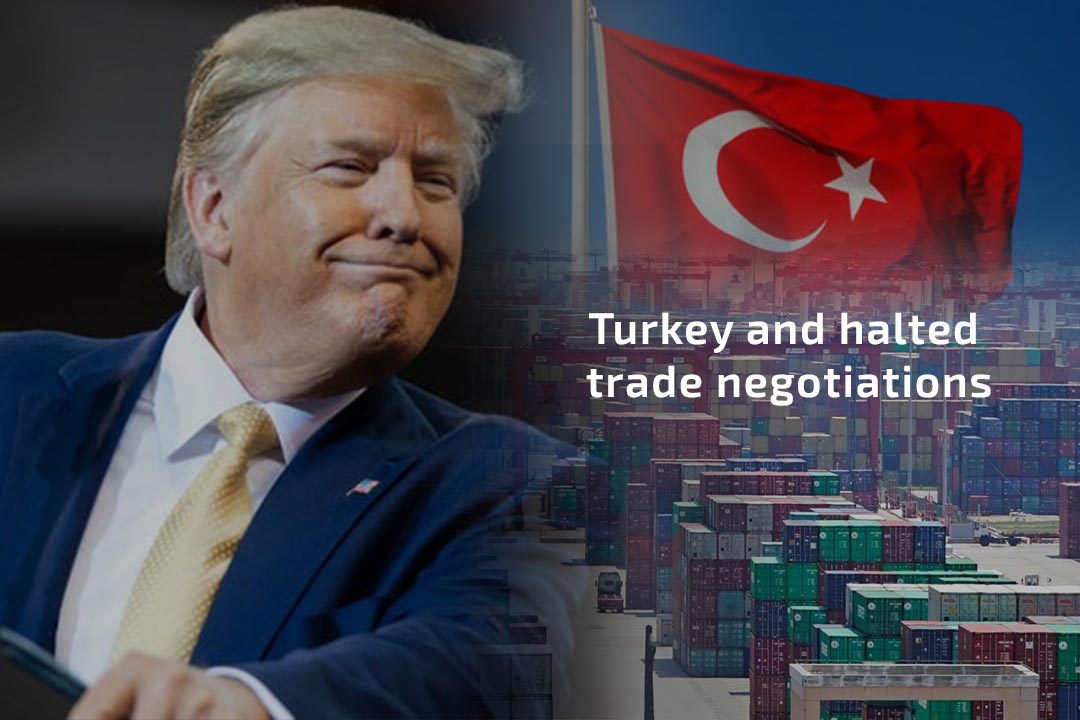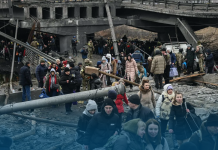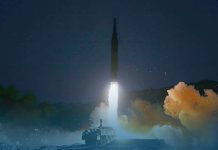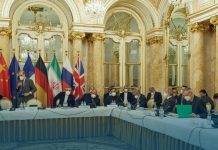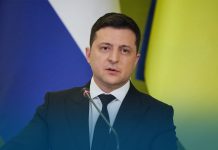The President of the U.S., Donald Trump, slaps tariffs on Turkey after signing an executive order. He immediately halted trade negotiations with Turkish officials and raised sanctions to 50% on Turkish steel, Mike Pence, the Vice President, confirmed the news on Monday. Trump announced the particular order on his official Twitter account on Monday afternoon. The statement of Trump said that the order would enable the U.S. to enforce influential additional sanctions on those who might be involved in serious human rights abuses, security, threatening the Syria peace, stability in Syria, becoming an obstacle for displaced people to return home, forcibly repatriating refugees or obstructing a ceasefire.
Statement from President Donald J. Trump Regarding Turkey’s Actions in Northeast Syria pic.twitter.com/ZCQC7nzmME
— Donald J. Trump (@realDonaldTrump) October 14, 2019
The revengeful measures followed the decision of Trump to order the withdrawal of all the troops of the United States from the northern border of Syria with Turkey, which eventually enabled the Turkish forces to launch an aggressive attack against the United States-allied Kurdish forces in Syria. Kurdish groups and Turkey have clashed for years; also, Ankara just gestured that it planned to launch out operations against the Kurd groups near the northern border of Syria with Turkey. On 6th October, the White House announced that it would take out the U.S. troops from the area after following a call between Turkish President Recep Tayyip Erdogan and U.S. President Trump.
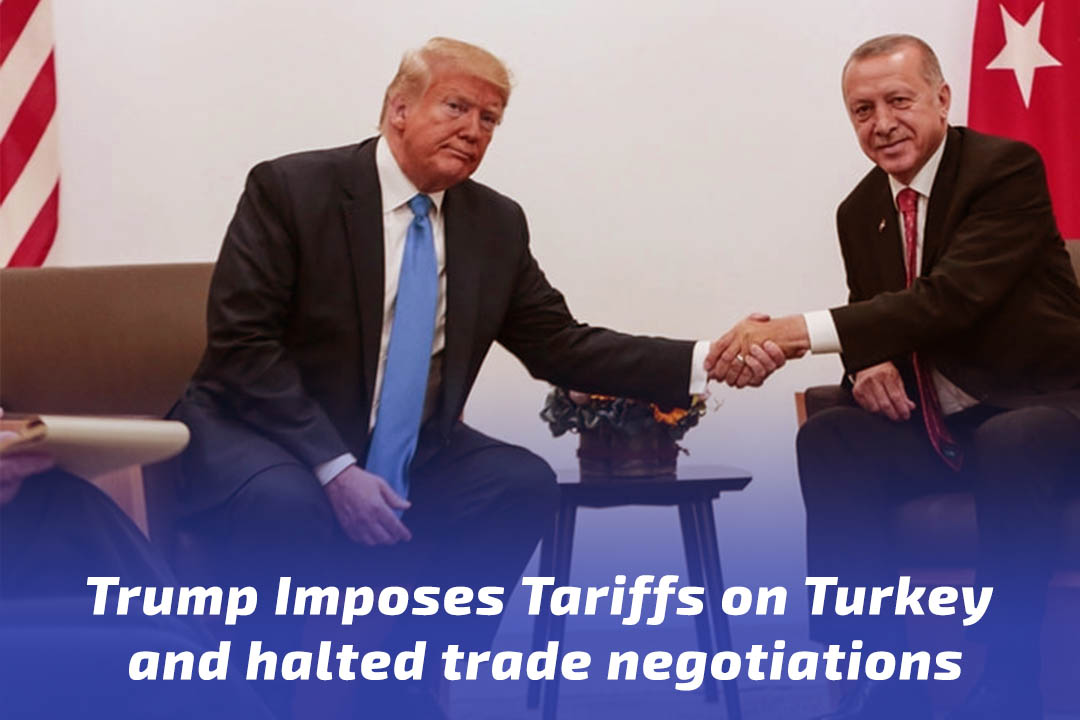
The unexpected foreign policy shift drew an infrequent wave of bilateral criticism against Trump, including from a few of his most loyal allies in Congress. For instance, Sen. Lindsey Graham, R-S.C., openly trashed the move of Trump and announced strategies to work with Nancy Pelosi, Democratic House Speaker, on a joint resolution to upturn the withdrawal.
Defense of Trump on Social Media
Kurds’ spokesmen accused the United States of having abandoned them to indiscriminate Turkish killing. Whereas, Donald Trump wrote on his Twitter account to defend himself against the gush of criticism. He pushed back on the more belligerent voices against him and wrote on Sunday: Those who falsely got them into Middle East Wars are still forcing to fight. Trump wrote in tweets that anyone who wants to support Syria in defending the Kurds is good with him, whether Napoleon Bonaparte, Russia, or China. Trump added, he hopes all do a good job, also whoever might come to assist the Kurds, a nationless ethnic group that fundamental to helping the United States to defeat the caliphate of ISIS in the Middle East. He said they are seven thousand miles away.
….and Assad to protect the land of our enemy? Anyone who wants to assist Syria in protecting the Kurds is good with me, whether it is Russia, China, or Napoleon Bonaparte. I hope they all do great, we are 7,000 miles away!
— Donald J. Trump (@realDonaldTrump) October 14, 2019
May Tariff on Turkish Steel Import
The United States split tariffs on imports of Turkish steel to twenty-five percent in May, even as trash an existing privileged trade states with the state. The import tariffs on Turkish aluminum and steel raised because of the campaign of Trump to pressurize Turkey to release an American, Pastor Andrew Brunson, who imprisoned in Turkey on terrorism charges that he denied. However, he was released in the previous year on the U.S. pressure. On Monday, Trump said in a statement that he seamlessly clear with Erdogan: The action of Turkey is causing a humanitarian crisis and creating circumstances for possible war crimes.
The U.S. President said that Turkey must certify the civilian’s safety, including ethnic and religious minorities, or at present or maybe in the future, responsible for the continuing imprisonment of ISIS terrorists in the region. The American President said that Turkey doesn’t seem to be regrettably mitigating the humanitarian effects of its invasion. Trump said in another statement that the U.S. would violently use economic sanctions to target those countries which enable, finance, and facilitate these terrible acts in Syria. He added, he is fully ready to rapidly destroy the economy of Turkey if the Turkish leaders will continue to follow this destructive and dangerous path.
About the United States Sanctions
Courtesy: CNBC
On Monday evening, the Treasury Secretary of the United States, Steven Mnuchin, described the sanctions while talking with the reporters in Washington DC as ‘very strong’ and would have a severe impact on the economy of Turkey. Moreover, the U.S. Treasury publicly shared a statement, which revealed that action was taken against Turkey’s energy ministries and defense, along with the interior ministry. The statement added, the actions of the Turkish government risking innocent civilians as well as destabilizing the entire region, together with the campaign to defeat the ISIS group.
Pence, the Vice-President, threatened that the sanctions would continue and get worse until and unless Turkey squeezes a rapid ceasefire, halts the violence, and settles on negotiating a long-term settlement on the issues at the border between Syria and Turkey. Pence said that the U.S. President repeated all this in Monday’s official phone call with the Turkish President. He also restated that the United States did not give a green signal to Turkey to occupy Syria. Earlier, the United States said that the intolerable Turkish invasion into Syria resulted in the release of several captured IS fighters.
EU countries ready to suspending arms export to Turkey earlier on Monday, however, stopped short of a European Union-wide arms restraint. Though, in response, Turkey said it would observe its c-operation with the European Union because of its biased and unlawful attitude.
Ground Reality of the whole occurrence
State media of Syria said that Russian-backed gov forces had entered the town of Manbij, the area where Turkish troops want to make a safe zone. Turkish forces, along with their allied Syrian militias, were assembling near the town. The agreement with Kurdish-led forces perceived as a boost for the President of Syria, Bashar al-Assad, as his forces would return to the north-eastern zones for the first time since 2012 when their withdrawal to fight rebels somewhere else permitted Kurdish militias to take control. In spite of conflicting with their attempts at self-government, Bashar al-Assad did not pursue to retake the region, especially when the Kurds became allies in the alliance against IS with United States troops on the ground.
Read Also: WTO Officially supports US tariffs on EU Products

